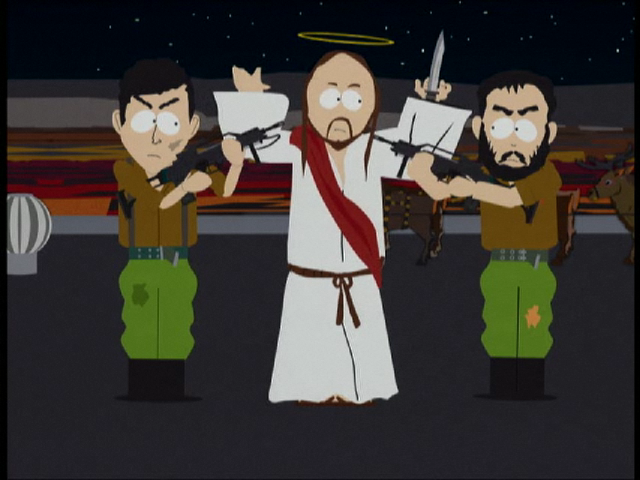What 23
Ex-Bluelighter
- Joined
- Jan 7, 2013
- Messages
- 3,905
And when he said live by the sword, die by the sword, does this mean that those who claim to follow him--Christians, should never defend themselves?
My brother in law writes. He has a couple of books published, and is writing another, I think. His words often send me into an internal frenzy, as although I'm naturally passive, in most situations, and try to make peace around me, I do feel that there is a line, where I will defend others, and myself, and I have, so far without drawing blood or attacking in anger--usually just headlocking or something an aggressor until they submit... But I will not rule out the use of more drastic measures...
But his recent writing is basically in admiration of all of those Christian men who sacrificed themselves--who got their heads chopped off/throats slit/gun shots to their heads. He is advocating total pacifism for the Christian, as if this is what Jesus means, even in these extremes. I question if my brother in law is himself a kind of extremist. And it bothers me to think that he wouldnt defend my sister and nieces and nephew if someone went on a killing spree around him. Because my instinct is to protect.
I'll post his post in the next post.
But is this what Jesus intended? To just go completely soft? Is this what loving your neighbor and doing good for those who hate you means? I hope I've been clear enough. I don't mean to disrespect in my over a explanation.
My brother in law writes. He has a couple of books published, and is writing another, I think. His words often send me into an internal frenzy, as although I'm naturally passive, in most situations, and try to make peace around me, I do feel that there is a line, where I will defend others, and myself, and I have, so far without drawing blood or attacking in anger--usually just headlocking or something an aggressor until they submit... But I will not rule out the use of more drastic measures...
But his recent writing is basically in admiration of all of those Christian men who sacrificed themselves--who got their heads chopped off/throats slit/gun shots to their heads. He is advocating total pacifism for the Christian, as if this is what Jesus means, even in these extremes. I question if my brother in law is himself a kind of extremist. And it bothers me to think that he wouldnt defend my sister and nieces and nephew if someone went on a killing spree around him. Because my instinct is to protect.
I'll post his post in the next post.
But is this what Jesus intended? To just go completely soft? Is this what loving your neighbor and doing good for those who hate you means? I hope I've been clear enough. I don't mean to disrespect in my over a explanation.
Last edited:





